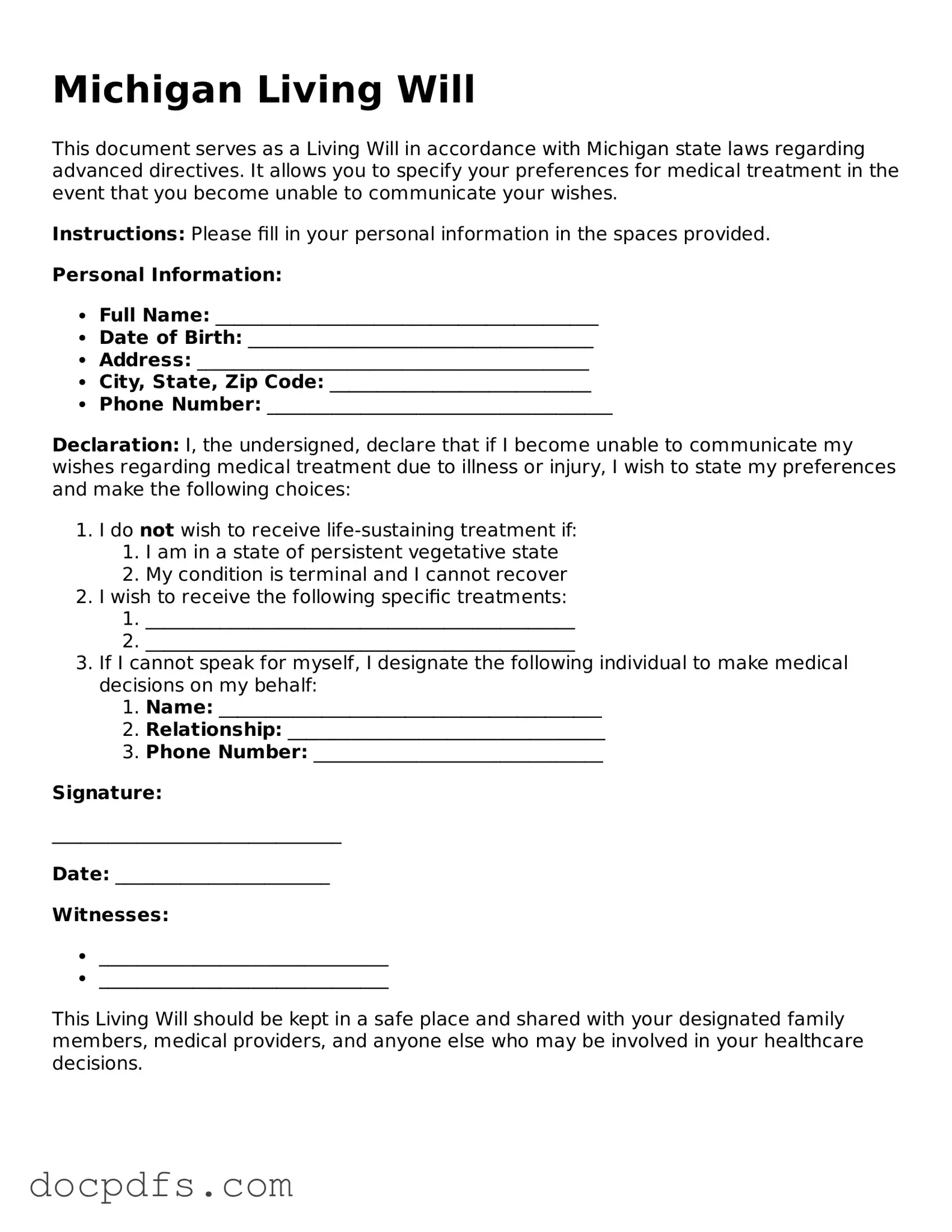What is a Michigan Living Will?
A Michigan Living Will is a legal document that allows individuals to express their wishes regarding medical treatment in the event they become unable to communicate those wishes themselves. It specifically addresses situations where a person is terminally ill or in a persistent vegetative state, guiding healthcare providers and loved ones in making decisions that align with the individual's preferences.
Who should create a Living Will?
Anyone over the age of 18 can create a Living Will. It's particularly important for individuals with specific health concerns, those undergoing major surgery, or anyone who wants to ensure their medical preferences are respected in the future. Having this document in place can provide peace of mind for both the individual and their family.
What are the key components of a Living Will in Michigan?
A Michigan Living Will typically includes:
-
Your personal information, such as name and address.
-
Specific instructions regarding life-sustaining treatments, such as ventilators or feeding tubes.
-
Guidance on pain relief and comfort measures.
-
Any preferences regarding organ donation.
These components help clarify your wishes and ensure they are followed in critical situations.
How does a Living Will differ from a Durable Power of Attorney for Healthcare?
While both documents serve important roles in healthcare decision-making, they are distinct. A Living Will outlines your specific medical treatment preferences, whereas a Durable Power of Attorney for Healthcare designates someone to make healthcare decisions on your behalf if you are unable to do so. Many people choose to have both documents to provide comprehensive guidance.
Is a Living Will legally binding in Michigan?
Yes, a properly executed Living Will is legally binding in Michigan. To ensure its validity, it should be signed and dated in the presence of two witnesses or a notary public. This helps confirm that the document reflects your true intentions and that you were of sound mind when creating it.
Can I change or revoke my Living Will?
Absolutely. You have the right to change or revoke your Living Will at any time, as long as you are mentally competent. To revoke the document, you can simply destroy it or create a new one that clearly states your updated wishes. It's advisable to inform your healthcare providers and loved ones of any changes you make.
How do I ensure my Living Will is followed?
To ensure your Living Will is followed, consider the following steps:
-
Share copies of the document with your healthcare providers and family members.
-
Discuss your wishes with your loved ones to ensure they understand your preferences.
-
Keep the document in an accessible location, and inform your family where it can be found.
Open communication is key to ensuring your wishes are respected.
You can obtain a Living Will form from various sources, including:
-
Online legal document services that offer state-specific templates.
-
Your healthcare provider or hospital, which may have forms available.
-
Local legal aid organizations that provide assistance with healthcare documents.
Make sure to use a form that complies with Michigan law to ensure its validity.
What should I do after completing my Living Will?
After completing your Living Will, take the following steps:
-
Sign and date the document in front of witnesses or a notary.
-
Distribute copies to your healthcare providers and family members.
-
Keep the original in a safe but accessible place.
By taking these steps, you help ensure that your medical preferences are honored when it matters most.

